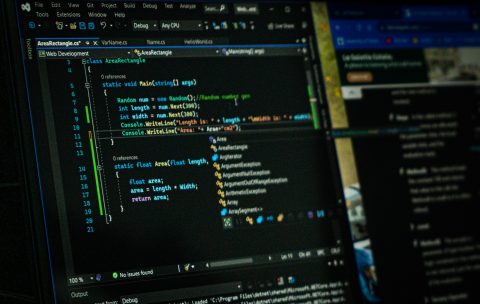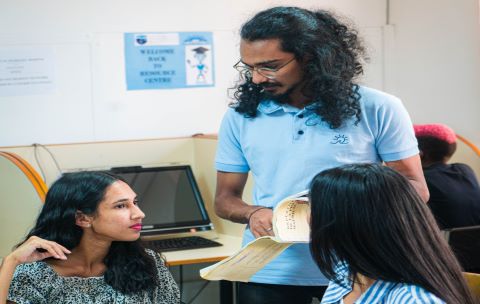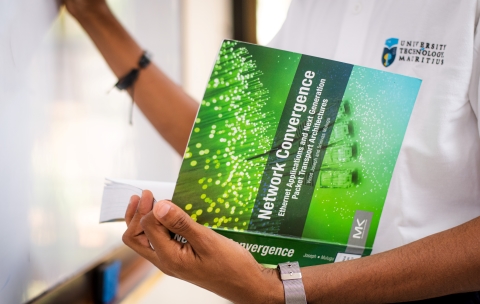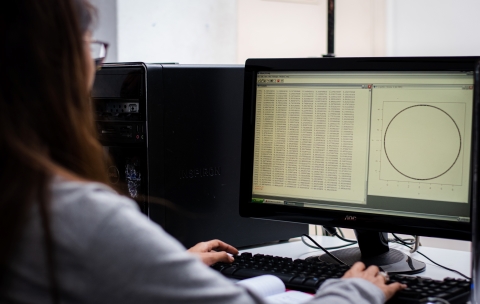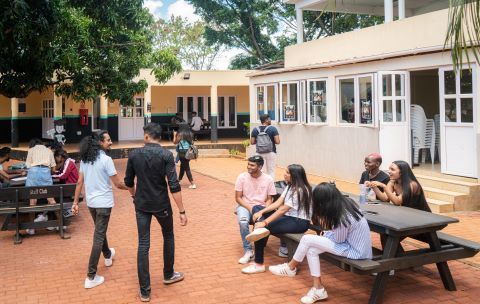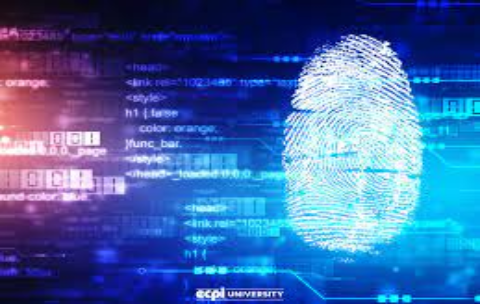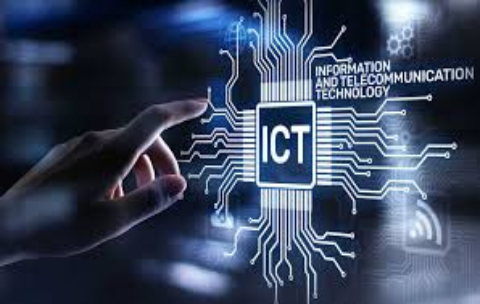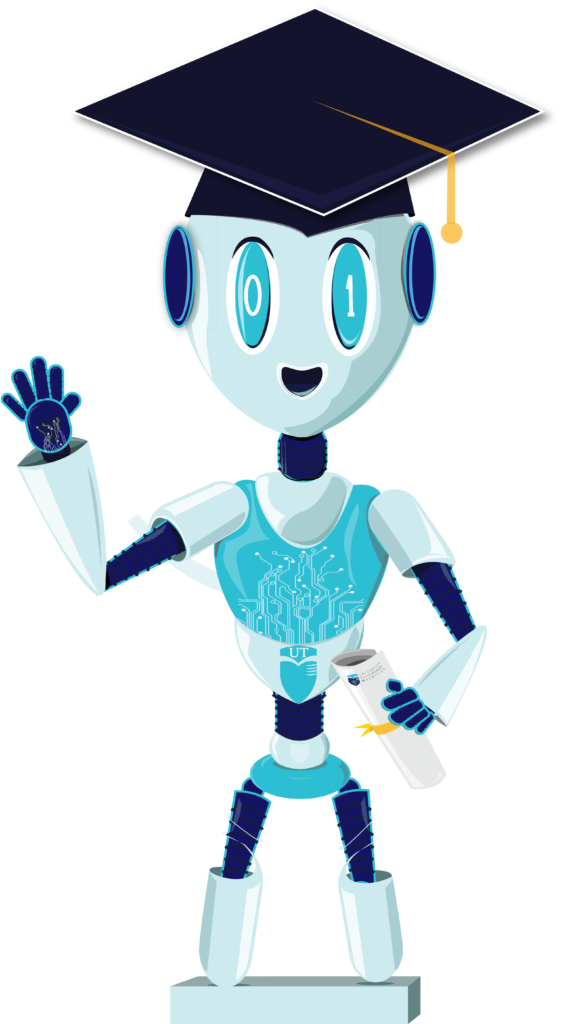Most popular
BSc (Hons) in Management (General)
29 Lessons
3 hours
All Levels
What you'll learn
Enable students to acquire state of the art knowledge and understanding of the field of management.
Provide an educational experience which will facilitate and promote students' intellectual development and life-long learning skills.
Promote critical awareness of the merits and complexities of management, and to inculcate an appreciation of the association between theory and practice.
Appraise students of important new developments in the field of management.
Appraise students of important new developments in the field of management.
Enable students to develop appropriate practical and transferable skills.
Provide a high quality management programme.
BSc (Hons) Accounting with Finance (ACCA and ICAEW Accredited)
27 Lessons
3 hours
All Levels
What you'll learn
Develop an understanding of the various accounting methods and techniques.
Equip students with conceptual and analytical tools for critical evaluation of the theories and practices of accounting and finance.
Produce graduates who will eventually occupy key positions in the accounting and finance profession as well as business services and consultancy.
BSc (Hons) Software Engineering
29 Lessons
2 hours
All Levels
What you'll learn
Appreciate the functioning of a computer system and its operating systems
Understand the principles of data modelling
Solve problems through optimal modelling and implement solutions by developing applications
Design and develop network-based solutions
Communicate both orally and in writing using traditional and electronic media
Understand how a business is organised and relate to how ICT is ubiquitously applied across the different business functions
Identify and solve research problems in the software industry
Define, plan and monitor ICT projects in organisations
Design and develop interactive multimedia applications
Define and implement quality management systems in a software engineering environment
Develop web and mobile applications using a variety of technologies and architectures
Understand the concepts and applications of emerging technologies
BSc (Hons) Computer Science with Network Security
29 Lessons
150 hours
All Levels
What you'll learn
Emphasizes the mathematical and theoretical foundations of computing such as programming, networks, database systems, cybersecurity, agile software design, mathematics, probability and statistics which cover the essential material required of all computer scientists, as well as a number of modules related to emerging technologies such as cloud computing, Internet of Things, Blockchain, Artificial Intelligence and Machine Learning.
Equips students with soft skill such as communication, collaboration and teamwork, time-management, self-discipline and leadership that are essential for readiness for a professional career as well as overall growth and development. These “softer” skills enable a graduate to adapt and succeed in the workplace.
Involves a substantial individual supervised capstone computer science project and work placement (internship) to allow students to put learning into practice and depict their potential. The curriculum provides a balanced and intellectually stimulating programme of theoretical and practical work.
MBA – Logistics and Supply Chain Management
14 Lessons
3 hours
All Levels
What you'll learn
The course equips participants with knowledge and skills relevant to business operations and strategy in a modern environment. Whilst providing a broad business background, it focuses on the management of the movement of materials, goods and labour, the supply chain, and issues in transport and distribution. This may be related to retail, passenger or freight applications, and may involve many forms of transport including air, sea, and road.
Rationalising the cost of such operations is a key task in many business organisations as part of cost-reduction strategies. The viability of an institution may be threatened if the right products are not delivered to the right people, in the right place, at the right time.
The course will develop the participant knowledge of the business environment, especially in regard to the management of logistics systems and the planning and delivery of logistics strategies. It examines the use of decision support systems and models related to logistics. Teaching will be augmented by high-profile lecturers from a wide range of private and public sector organisations.
BSc (Hons) Mathematics
29 Lessons
150 hours
All Levels
What you'll learn
A mastery of the principal skills required for work in mathematics.
Achieved a broad understanding and knowledge, and have an interest in and appreciation of mathematics.
Become conversant with information technology, communication and scientific presentation.
Acquire problem-solving attributes.
Skilled in the application of mathematics in a variety of fields, including science, engineering and business.
BA (Hons) Film and Video Production
29 Lessons
1500 hours
All Levels
What you'll learn
Understand the whole workflow of digital film production from pre to post production.
Understand and apply the principles for creative scriptwriting and storytelling.
Operate at post-production level for video editing, colour grading, application of Special Effects (sfx) and sound design.
Produce films, short videos and documentaries.
Handle and operate the camera properly.
Understand and work with different lighting conditions.
Understand and work with compositing and keying techniques for film production.
Understand, design and plan the integration of 3D Animation and Special Effects (sfx) in the digital video workflow.
BSc (Hons) Risk Management with Business Intelligence
27 Lessons
3 hours
All Levels
What you'll learn
The Program is a first initiative to integrate Risk Management and Business Intelligence.
Responding to new needs in the business world, its enterprising interdisciplinary approach builds and synthesizes statistical, mathematical, financial, and information system techniques and tools to develop innovative professional skills.
MSc Tourism Management and Marketing
6 Lessons
3 hours
All Levels
What you'll learn
To provide an understanding of tourism concepts and marketing related issues.
To demonstrate a critical understanding of the different conceptual, empirical and methodological development of tourism management and marketing.
To demonstrate knowledge of tourism trends in a local and global context.
To analyse marketing strategies and opportunities in the tourism industry.
To encourage decision-making skills in a tourism business environment and ensure a balance between the acquisition of conceptual and practical knowledge.
To enable students to undertake research in the field of tourism and marketing.
Trending
BA (Hons) Film and Video Production
29 Lessons
1500 hours
All Levels
What you'll learn
Understand the whole workflow of digital film production from pre to post production.
Understand and apply the principles for creative scriptwriting and storytelling.
Operate at post-production level for video editing, colour grading, application of Special Effects (sfx) and sound design.
Produce films, short videos and documentaries.
Handle and operate the camera properly.
Understand and work with different lighting conditions.
Understand and work with compositing and keying techniques for film production.
Understand, design and plan the integration of 3D Animation and Special Effects (sfx) in the digital video workflow.
BSc (Hons) Risk Management with Business Intelligence
27 Lessons
3 hours
All Levels
What you'll learn
The Program is a first initiative to integrate Risk Management and Business Intelligence.
Responding to new needs in the business world, its enterprising interdisciplinary approach builds and synthesizes statistical, mathematical, financial, and information system techniques and tools to develop innovative professional skills.
MSc Tourism Management and Marketing
6 Lessons
3 hours
All Levels
What you'll learn
To provide an understanding of tourism concepts and marketing related issues.
To demonstrate a critical understanding of the different conceptual, empirical and methodological development of tourism management and marketing.
To demonstrate knowledge of tourism trends in a local and global context.
To analyse marketing strategies and opportunities in the tourism industry.
To encourage decision-making skills in a tourism business environment and ensure a balance between the acquisition of conceptual and practical knowledge.
To enable students to undertake research in the field of tourism and marketing.
MASTER OF LAWS (LL.M.) IN CORPORATE AND INSOLVENCY LAW
13 Lessons
3 hours
All Levels
BSc (Hons) Computer Science with Network Security
29 Lessons
150 hours
All Levels
What you'll learn
Emphasizes the mathematical and theoretical foundations of computing such as programming, networks, database systems, cybersecurity, agile software design, mathematics, probability and statistics which cover the essential material required of all computer scientists, as well as a number of modules related to emerging technologies such as cloud computing, Internet of Things, Blockchain, Artificial Intelligence and Machine Learning.
Equips students with soft skill such as communication, collaboration and teamwork, time-management, self-discipline and leadership that are essential for readiness for a professional career as well as overall growth and development. These “softer” skills enable a graduate to adapt and succeed in the workplace.
Involves a substantial individual supervised capstone computer science project and work placement (internship) to allow students to put learning into practice and depict their potential. The curriculum provides a balanced and intellectually stimulating programme of theoretical and practical work.
MBA Finance And Investment
14 Lessons
3 hours
All Levels
What you'll learn
Expand their knowledge of financial modelling and investment decisions.
Employ advanced analytical tools and quantitative techniques relevant to the financial world.
Demonstrate proficiency in the analysis and interpretation of a wide range of data.
Synthesize knowledge from across a range of business disciplines, and apply it to the analysis of complex investment issues.
Demonstrate key personal and inter-personal skills for effective management and implementation of solutions in organizations.
BSc (Hons) Environmental and Public Health.
29 Lessons
1500 hours
All Levels
What you'll learn
Identify social and scientific factors which affect environmental and public health.
Identify and manage the various existing health hazards present in the environment affecting the community as a whole.
Be aware of the legal aspects, organisation and managerial frameworks governing public health practices in Mauritius.
Understand sustainability issues, inter-disciplinary approaches and partnership approach to working in environmental health.
Gain basic skills in management, accounting, procurement and communication.
MSc Enterprise Security and Digital Forensics
12 Lessons
3 hours
All Levels
What you'll learn
Display a mastery of the principal skill required for work in security & forensics department
Have achieved broad understanding and knowledge, and have an interest in and appreciation of risk assessment, major security issues, policies, securing software, cloud concepts-security etc
Be logical and analytical, and possess skill in security, biometrics, high level forensics research and investigation
Become knowledgeable on core security focusing on predictions and or potential threats and
analysis and core practice and actions that are required
MSc in Information and Communication Technology with Specialisation in Networking
13 Lessons
2 hours
All Levels
What you'll learn
Achieve a broad understanding and working knowledge of the network technologies
Intervene professionally at all levels of the hardware development life cycle and deal with complex issues, both systematically and creatively
Develop and write proper documentation for network-related projects
Acquire appropriate communication skills to handle various client-facing situations and solve complex problems
Be equipped with work-ready skills.
MSc (Eng) Telecommunications Engineering
11 Lessons
3 hours
All Levels
What you'll learn
Achieve the understanding of engineering principles at higher levels and the ability to apply them to analyse key engineering processes;
Develop the ability to identify, classify and describe the performance of systems and components through the use of analytical methods and modeling techniques;
Develop more abilities to apply quantitative methods and computer software in order to solve engineering problems;
Be able to create and develop economically viable products, processes or systems to meet a defined need;
Acquire intensive knowledge of management techniques which may be used to achieve engineering objectives;
Acquire intensive knowledge of relevant legal requirements governing engineering activities, including personnel, health, safety and risk;
Achieve the understanding of the need for a high level of professional and ethical conduct in engineering;
Be able to apply their engineering skills, combining theory and experience, and to use other relevant knowledge and skills which include knowledge of characteristics of particular materials, equipment, processes, or products, workshop and laboratory skills, knowledge of quality issues, knowledge of codes of practice and industry standards, ability to work with technical uncertainty etc.
We found 1 course available for you
Filter by Level
Filter by School
Filter by Department
- Accounting, Finance and Economics, Department of
- Applied Mathematical Sciences
- Business Informatics and Software Engineering
- Business Management and Law, Department of
- Creative Arts, Film and Media Technologies
- Environment Science and Social Sustainability, Department of
- Industrial Systems Engineering
- Logistics and Transport Management
- Tourism Leisure and Services, Department of
Search
Beginner
BA(Hons) Art and Design (Top Up) Collaborative Programme with FDI
Programme Information Art and Design is a multi-disciplinary field focusing …
Free



